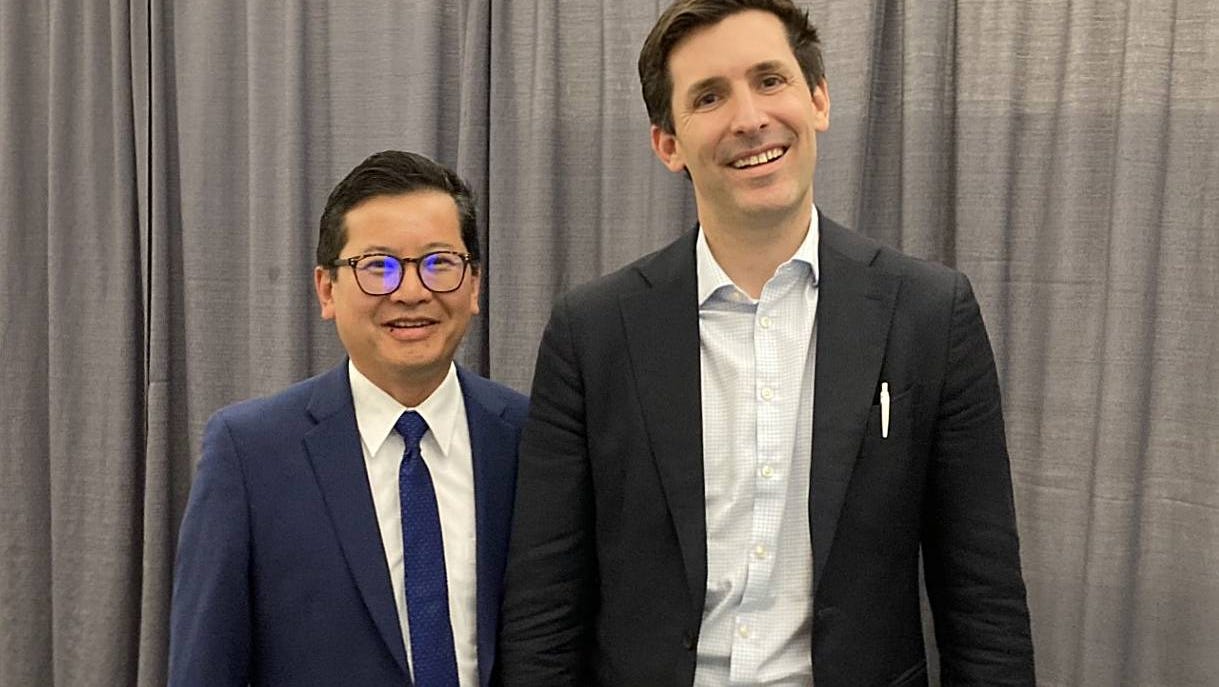
RFK Jr. advisor Calley Means on why many Americans distrust vaccines
Calley Means, a senior advisor for Health and Human Services Secretary Robert F. Kennedy Jr., said there are reasons why people don’t trust vaccines.
- Means highlighted the high cost of U.S. healthcare compared to other countries, noting Americans’ shorter lifespan.
- He blamed the food industry and the prevalence of ultra-processed foods, particularly those purchased through SNAP benefits, for contributing to the nation’s health problems.
America’s health-care system needs to be overhauled because it has done a poor job of controlling chronic illnesses such as obesity, diabetes and high blood pressure, a senior advisor to Health and Human Services Secretary Robert F. Kennedy Jr. said during a May 12 speech in Erie.
Instead of educating families about the importance of eating a healthier diet with fewer ultra-processed foods, Calley Means said the federal government has focused on treating the symptoms with expensive drugs like the new injectable GLP-1 medications.
“We are paying three times more than any country in the world for health care and living seven years less than many of them,” Means said during the speech at the Bayfront Convention Center. The average United States lifespan is 79.6 years, which is 48th out of 201 world countries.
Means, the brother of current surgeon general nominee Dr. Casey Means, spoke to about 350 people at LECOM Health’s annual Culture of Caring education conference for long-term care professionals.
An author and former lobbyist, Means addressed many of the sometimes controversial health-care issues associated with Kennedy during a nearly 90-minute discussion with Dr. James Lin, president of the LECOM Institute for Successful Living.
One of those issues is opposition to his sister’s nomination to become the nation’s chief medical doctor and health educator. Dr. Means left her surgical residency because she was disillusioned with traditional medicine and currently has an inactive Oregon medical license.
“Health care doesn’t just happen in the doctor’s office,” said Means, who cofounded TrueMed, which helps people use tax-free health savings accounts for healthy lifestyle expenses like food, exercise, and wellness coaching. “There are people who are not ready to leave the system, but they need people pushing from within the system.”
Another issue was Kennedy’s track record on vaccines. He has been a champion of personal choice for vaccines, even the required childhood ones.
Kennedy also questioned the Centers for Disease Control and Prevention’s childhood vaccination schedule, asking during his first address to HHS staff whether it plays a role in Americans’ poor health.
“Bobby Kennedy has made very clear that people should follow the CDC schedule and take the MMR vaccine, so I have nothing to say on that,” Means said after the speech. “Additionally, he has brought a very important point to the forefront that we have to see science as an ongoing process. That we have to continue to keep asking questions. We have to look at vaccine injury and ask questions about why children are getting sick.”
Means, RFK Jr. blame food industry for nation’s health issues
Means repeatedly blamed the food industry for America’s health problems, pointing to the rise in ultra-processed food.
These foods are made from many manufactured ingredients and often are high in sugar, calories, fat and sodium, and low in nutrients. He pointed out that many ultra-processed foods can be purchased by low-income people through the federal government’s Supplemental Nutrition Assistance Program.
“About $70 billion a year from our food stamp program goes to ultra-processed food,” Means said. “No other country in the world allows their low-income nutrition program to go to that type of food. Ten percent of the program goes toward soda.”
Means: Food dye plan proof of change under RFK Jr.
Means said things are already starting to change since Kennedy became head of HHS.
He pointed to the federal government’s new plan to phase out artificial dyes from the nation’s food supply, though the food industry is expected to fight that change.
“A key goal, a foundational goal, is to restore trust in science,” Means said. “This administration wants in four years to have increased trust in science.”
Contact David Bruce at dbruce@gannett.com. Follow him on X @ETNBruce.

